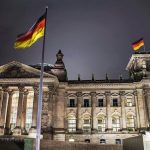Argentina’s Ministry of Education in Buenos Aires has partnered with the ETH Kipu Foundation to introduce Ethereum and blockchain technology into the high school curriculum. This partnership aims to equip students with the skills needed to excel in the evolving tech economy. Starting on August 27, high school students in Buenos Aires will have the chance to participate in internships focusing on blockchain projects. This initiative positions Argentina ahead of other Latin American countries and seeks to boost the country’s economic prospects by fostering innovation in the youth.
In addition to in-school programs, the partnership also includes the development of an online Solidity course, a programming language used to create Ethereum applications. This course will be offered to 500 students aged 18 and older, providing them with the necessary tools to actively engage in the Ethereum development community. The training is expected to empower young Argentines to develop applications that can be integrated into local businesses, potentially enhancing the country’s economic growth. With this strategic move, Argentina is taking significant steps towards embracing digital innovation and preparing its youth for the future.
To ensure the success of the initiative, the ETH Kipu Foundation has pledged to train 30 teachers through a hybrid program focused on Ethereum and blockchain technology. While there is no confirmation yet on expanding the program to other cities or provinces in Argentina, the current efforts represent a commendable advancement in the country’s adoption of digital innovation. Paula D., co-founder of the ETH Kipu Foundation, expressed optimism about the impact of the program, emphasizing that integrating Ethereum education into high schools will not only teach students about technology but also provide them with the tools to shape the future and open up new career opportunities for young people.
Earlier this year, Argentina’s President Javier Milei decided to remove the proposed crypto tax law from a controversial omnibus reform package to expedite the approval of a set of reforms. The bill, initially including provisions requiring taxpayers to declare ownership of previously undisclosed assets, including cryptocurrencies, was removed due to the need for rapid economic development and legislative efficiency. Argentina is currently facing severe inflation, with the fourth-highest annual inflation rate globally at 200%. Despite this, the country has seen significant growth in its cryptocurrency market, with high ownership rates of digital assets.
As Argentina navigates economic challenges, the country’s decision to integrate Ethereum and blockchain technology into high school education reflects its commitment to preparing the future workforce for the digital economy. By offering students the opportunity to delve into blockchain projects and learn a programming language like Solidity, Argentina is taking proactive steps to position itself as a leader in digital innovation. The enthusiasm and support from organizations like the ETH Kipu Foundation further underscore the potential impact of these initiatives on the country’s economic landscape. Argentina’s willingness to adapt to emerging technologies bodes well for its long-term growth and competitiveness in the global arena.











